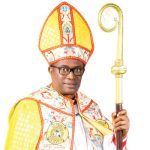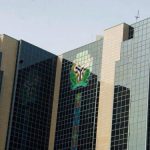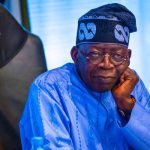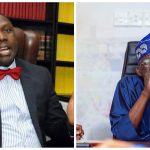
ABDULRAHMAN ZAKARIYAU analyses the potential merger between the Peoples Democratic Party and the Labour Party ahead of 2027, even as the meeting of their former presidential candidates, ex-Vice President, Atiku Abubakar, and Peter Obi continues to generate debate
Political parties akin to other pillars of democracy such as the executive, judiciary, legislature, and the Independent National Electoral Commission play an essential role in democratic governance. They serve as platforms for like-minded individuals to mobilise and persuade voters to elect their candidates into office, thereby shaping government policies for the public good.
In this clime, political parties and their leaders are involved in diverse activities characterised by intrigues, manipulations, defections, and realignments aimed at securing electoral victories at both state and federal levels. The strategic collaboration of two or more parties with differing interests has emerged as a widespread practice, referred to as a merger or coalition. This entails influential parties and their leaders joining forces to challenge and democratically replace a dominant or ruling party.
Since Nigeria’s shift to democracy in 1999, there have been endeavours by political parties to merge or form coalitions, albeit with limited success. A notable exception occurred in 2013, leading up to the 2015 elections, when the defunct Action Congress of Nigeria, All Nigeria Peoples Party, Congress for Progressive Change, and certain members from the All Progressives Grand Alliance merged to create the All Progressives Congress.
Chairman of the merger committee of the ACN, Tom Ikimi explained that they toed this part to “offer to our beleaguered people a recipe for peace and prosperity.
“We resolve to form a political party committed to the principles of internal democracy, focused on serious issues of concern to our people, determined to bring corruption and insecurity to an end, determined to grow our economy and create jobs in their millions through education, housing, agriculture, industrial growth, etc. and stop the increasing mood of despair and hopelessness among our people.”
As a result, in 2015, for the first time in Nigeria’s history, the formidable opposition party, the APC, won the country’s most credible presidential election, defeating the People’s Democratic Party, which had been in power for 16 years. The defeat of President Goodluck Jonathan of the PDP by Muhammadu Buhari of the APC underscored the significance of a merger or coalition in our political system, a trend that has since become familiar and constant.
In 2022, as preparations intensified for the 2023 presidential election, the concept reverberated among political stakeholders and ordinary citizens. Many believed that a merger akin to the one that propelled the APC to power for eight years was necessary for major opposition parties, including the Labour Party, New Nigeria People’s Party, and PDP, to challenge the APC’s dominance.
However, skeptical of this notion, presidential candidates from opposition parties—Atiku Abubakar of the PDP, Peter Obi of the LP, and Rabiu Kwankwaso of the NNPP—chose to contest the 2023 election separately, each with their platforms. Ultimately, they were defeated by President Bola Tinubu of the APC.
Faced with the current circumstances, prominent figures within the PDP and LP, namely Atiku and Obi, convened recently to discuss the possibility of merging ahead of the 2027 election. The former Vice President mentioned that his recent meeting with Obi might indicate a possible alliance leading up to the 2027 general elections.
Responding to questions about the meeting with Obi, Atiku said, “It’s just a normal friendly meeting that we often have, particularly among us in the opposition parties. Such meetings are healthy for Nigeria’s democracy and in the country’s interest.”
On whether this will bring about a merger, he said, “Yes, it’s very much possible. We can merge to achieve a common goal. So, it’s possible, and nothing can stop it if we wish to achieve that.”
The former Vice President, who denied that the choice of presidential candidate might frustrate the merger discussion, said, “That’s not true. That challenge will not arise. I can tell you that the choice of who will fly the flag of the party won’t be an issue.”
As a result, this development has sparked discussions among political analysts and stakeholders who raise questions about the timing, motives, and potential impact of this merger on the 2027 election.
‘Shaping 2027 polls’
A political analyst, Jide Ojo, said Atiku’s proposed merger could only work with sincerity of purpose. Ojo in an interview with Saturday PUNCH believed the call was coming at the appropriate time and noted that some political parties must be ready to lose their identity.
He said, “The merger move is in order provided that the purpose is sincere. Because what I think is plaguing our opposition party is trust. Because when you talk of a merger, you are going to lose your own identity, so, to that extent, you need to be firm and make sure you have a win-win solution.
“Merger will strengthen the hands of the opposition. Even though, I dare say that this is what they should have done ahead of the 2023 election, they didn’t do that. And when you look at the combined strength of the Labour Party presidential candidate, the PDP presidential candidate, and the NNPP presidential candidate, if they had worked towards having a merger, there is the possibility that Bola Tinubu would not be President today.
“So, now is the time for alliance and realignment of forces if they want to succeed in 2027. They need to come together either in an alliance or in a merger. But it is better for them in a merger than in an alliance. This is because it is a merger that works most, with the evidence that we have seen from the APC. So, I think they just want to work on that hypothesis, that if they merge that would help their cause, but how that works out, time will tell.”
The political analyst continued, “It is a good time to start thinking about this merger because 2027 is already upon us. So, if the purpose is sincere, yes, it can work to their advantage. That is the only way they can displace the incumbent party, the APC. They have between now and the end of 2025 to begin to pilot their electoral prowess.
“Politicians are incurable optimists; they believe in risk-taking, and the experience with the APC has shown that is the way to go. If the NNPP, PDP, and LP come together in a merger, just imagine how many seats they will be controlling in the national assembly, and they will have an additional two governors. But what that will do is that all those APC members who feel disenchanted will find their way into the new merger to boost their chances in 2027.
“If there is sincerity of purpose and commitment and proper funding, and they can tick all the boxes, they can work through all that is required with INEC. It is something that can be done. But I think they need more, even after the merger, to embark on serious membership recruitment. If they can recruit more and fund their activities, if they can raise funds to fund their activities and present themselves as a better alternative to the APC, then it is doable. So, if they want to make Bola Tinubu a one-term President, they have to start now by combining their strength and ensuring that they are very strategic in their actions ahead of 2027.”
‘Merger needless to unseat APC’
Contrary to Ojo’s view, a lecturer in the Department of Political Science at the University of Ilorin, Dr Adebola Bakare, said the opposition political parties do not need to merge to win the 2027 election.
The political scientist said if opposition political parties perform their function at an optimal level, Nigerians will see them as the better alternative.
He lamented that in Nigeria, most political parties were not established to fully perform the functions of political parties. He added, “They are only interested in performing just one of the numerous functions of a political party, which is to contest and attempt to win elections to form a government.
“So, political parties in Nigeria are seen as associations of people who are only interested in winning and forming governments. The moment they come together, they don’t care about ideology, they don’t care about a manifesto; they don’t care about the economic methods, styles, or systems they want to use. All they care about is winning the election. So, the moment some of them come together, contest, and lose their elections, they go back to their shells until another four years, when they come out again,” he added.
Bakare said, “It is when people discover that the majority of those that aren’t winning the elections are not delivering the dividends of democracy. So, to me, I don’t believe the opposition political parties need to be called before they can perform the opposition. And secondly, I also don’t believe that there is a need for them to merge before they can perform their function as an opposition party.
He said, “The merger they are talking about in the last few days shows that they don’t have the country’s interests at heart. It shows that their interest is to wrest power from the APC in 2027. Can you now see a situation where we just finished the election this year and they are already scheming for 2027? So, they are not even interested in performing their functions.
“You know there are numerous functions that an opposition political party ought to perform. They are supposed to communicate with the people and enlighten them about political events and situations in the country. They are supposed to serve as watchdogs to the ruling political party so that where the ruling party is misbehaving, they will caution it to prevent governance recklessness.
“Also, in a presidential system, as we are practising, there’s nothing bad when Nigerian opposition political parties adopt some elements of what we see in parliamentary democracy. When Bola Tinubu was elected President, Atiku, as the PDP candidate, also became the shadow president of the country. He came second, and Peter Obi could also become the shadow president of the country. You know, if they had won the election, they would have appointed ministers. They could still go ahead and appoint them as shadow ministers.”
The political analyst continued “Now, by the time we have a Minister of Education from the ruling party occupying the office, we can now have a shadow Minister of Education from the opposition parties. The essence of that shadow minister is to scrutinise and analyse the government’s education policy. Whatever the minister is bringing out, it is going to be constructive criticism from the shadow minister. When the ruling party is getting it right, the opposition will tell the country that this policy is right. Where the ruling party is getting it wrong, the shadow minister of the opposition parties will provide an alternative.
“When they do this, they will put the APC on its toes to make sure it delivers. It will also portray the opposition party as a party that is better equipped to rule the country. So, the people will have options in the next election.
“If they want to perform their duty as an opposition party, they need no merger or coalition. They have to perform those activities unilaterally. This is why I am not too keen that something good will come out. I advise the opposition parties to examine constructively the policies of the government so that the government will be on its toes.”
Unify parties – NDP
Lending his voice to the matter, a political analyst and former national chairman of the National Democratic Party, Chudi Chukuwani, urged Atiku and Obi to unify their parties before discussing a merger.
Chukuwani stated that a merger amid internal crises within the PDP and LP would have little impact on the 2027 elections. The former national chairman of the NDP in an interview with Saturday PUNCH stated, “Atiku’s statement that if the PDP says he should not run, he will not run, and if the PDP asks him to support Obi, he will support Obi. That is a signal that until it happens, everything else is just talk.
“Another question is which platform will either of them contest? This is because when I look at the LP, they failed to manage their success, and they are fighting all over the place. They are still in court in one way or another. So, you have a party that is perpetually in court and crisis, even with the Nigeria Labour Congress.
“The LP is in a terrible situation. So, that may not be a dignified platform for any coalition candidate. PDP also has its issues. So, the first and best thing for all of them is to solve their parties’ problems first, have a unified party, and then start planning how to align with other opposition parties.
“They need to settle the internal issues in the LP and PDP before they can talk about a merger or alliance agreement. They need unified members to form a strong alternative. A merger won’t have a significant impact without a unified PDP and LP.”
However, the next 36 months will tell if the aim of the planned merger by the two opposition parties will be achieved, as the APC has always proved itself as a formidable ruling party.



